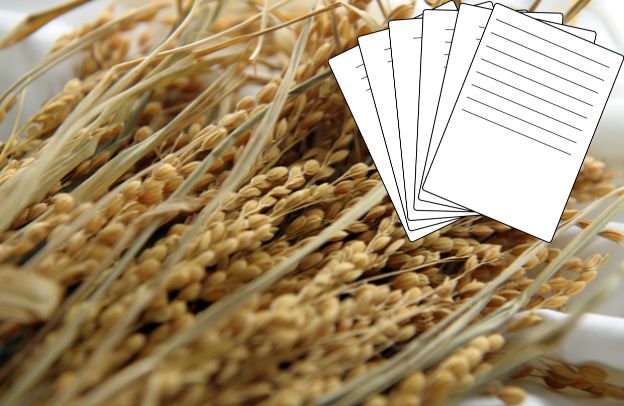Unlocking Nigeria’s Agribusiness Potential: A Goldmine for African Diaspora Entrepreneurs

Have you ever wondered why Africa, blessed with vast arable land, still struggles with food insecurity? Why does Nigeria, with over 70 million hectares of cultivable land, continue to import staple foods like rice and wheat? As an African diaspora entrepreneur, you may be searching for profitable and impactful investment opportunities. What if the answer lies in Nigeria’s booming agribusiness sector?
Learn How to Leverage Your Story through our Story to Asset Framework.
Agriculture has long been the backbone of Nigeria’s economy, but its potential remains largely untapped. From rice production to livestock farming, agribusiness offers enormous opportunities to create jobs, increase local production, and drive economic transformation. The question is: how can African diaspora investors leverage Nigeria’s agricultural potential to create wealth while solving critical food security challenges?
Let’s explore the enormous opportunities, the role of government policies, and why now is the best time for you to invest in Nigeria’s agricultural sector.
Nigeria’s Agricultural Landscape: A Sleeping Giant
Nigeria is Africa’s most populous country, with over 200 million people, yet it remains one of the largest food importers on the continent. According to the Food and Agriculture Organization (FAO), agriculture contributes nearly 25% of Nigeria’s GDP and employs about 35% of the labor force.
However, despite these figures, the country still spends over $10 billion annually importing food, including rice, wheat, sugar, and fish (FAO, 2023). So, what’s holding Nigeria back?
Challenges such as outdated farming techniques, inadequate infrastructure, post-harvest losses, and limited access to financing have historically hindered growth. However, with recent advancements in technology, government-backed policies, and private-sector involvement, Nigeria’s agribusiness landscape is undergoing a major transformation.
For diaspora entrepreneurs, this presents a golden opportunity to invest in large-scale commercial farming, agro-processing, mechanization, and exports.
See also: How Technology is Improving The Production of Rice in Africa
Key Agribusiness Opportunities for Diaspora Investors
According to the Food and Agriculture Organization of the United Nations report, there is ample evidence demonstrating how the financial resources and expertise of diaspora communities can drive development in their countries of origin.
However, diaspora engagement in agriculture and rural development has been relatively limited, primarily due to challenges in investing in rural areas.
These challenges include a lack of agricultural expertise, limited access to information on investment opportunities, difficulty in enforcing decisions and understanding market dynamics from afar, the isolation of rural regions, challenges in effectively channelling contributions to their intended destinations, and a lack of strong networking and partnerships between rural institutions and diaspora organizations.
With the right support and platforms, diaspora groups have the potential to significantly contribute to rural development through capital investment, skills and technology transfer, sharing valuable knowledge, and fostering enhanced social networks. Now, here are some of the Key Agribusiness Opportunities for Diaspora Investors:
1. Rice Production: Nigeria’s Untapped Goldmine
Rice is a staple food in Nigeria, with an annual consumption of over 7 million metric tons. Yet, the country still imports a significant portion of its rice. The Nigerian government has implemented policies like the Anchor Borrowers’ Program (ABP) and the Ban on Rice Imports to boost local production.
The good news? There’s an increasing demand for locally produced rice, and investors can take advantage of:
- Large-scale rice farming: Investing in mechanized rice farming can yield high returns.
- Rice milling and processing: Nigeria still lacks enough modern rice mills, creating an opportunity to invest in processing plants.
- Rice straw paper production: As the world shifts to eco-friendly alternatives, rice straw is being used for paper production, opening new industrial avenues.
According to the FAO, South-South Cooperation Program collaborative projects between Nigeria and countries like China have helped improve rice yields, showing that the right investment in infrastructure and technology can lead to food self-sufficiency (FAO, 2023).
2. Cassava: The Versatile Money Crop
Did you know that Nigeria is the largest producer of cassava in the world? Cassava is not just a food staple, it is an industrial crop used in producing ethanol, starch, flour, and animal feed. The demand for cassava-based products is growing both locally and internationally.
Investment opportunities in Cassava include:
- Processing plants for cassava flour, starch, and ethanol
- Cassava farming for export markets
- Cassava-based animal feed production
With rising demand for alternative flours in the global market, Nigeria can become a major exporter of cassava derivatives with the right investment.
3. Livestock Farming and Dairy Production
Nigeria imports over 60% of its dairy products, yet its climate is favorable for large-scale livestock farming. With increasing demand for meat, milk, and poultry, the livestock industry presents great opportunities for entrepreneurs. Potential investment areas include:
- Dairy farming and milk processing
- Cattle ranching for beef production
- Poultry farming for eggs and meat
Government initiatives such as the National Livestock Transformation Plan (NLTP) aims to modernize the sector, making it more attractive for private investment.
4. Agro-Processing and Value Addition
Nigeria produces an abundance of raw agricultural products, but post-harvest losses account for 30-50% of food wastage, according to the International Institute of Tropical Agriculture (IITA).
By investing in agro-processing, you can help reduce waste while increasing profitability.
Consider these opportunities:
- Tomato paste production: Nigeria imports tomato paste despite being a major tomato producer.
- Cashew nut processing: Nigeria is one of the top cashew producers but exports most of it raw instead of processing it locally.
- Fruit juice and beverage processing: A growing middle-class population means more demand for healthy beverages.
5. Smart Farming and Agritech Solutions
The future of agribusiness in Nigeria lies in technology-driven solutions. From precision agriculture to drone-based farming and AI-driven analytics, agritech is transforming the sector.
Investment areas include:
- Agricultural drone technology for monitoring crop health and improving yields
- Smart irrigation systems to optimize water use
- E-commerce platforms connecting farmers to buyers
- Blockchain for supply chain transparency
Startups like Farmcrowdy and Thrive Agric have already pioneered digital solutions in Nigeria’s agriculture, proving that the market is ripe for more innovations.
What is Agritech?
Agritech, short for agricultural technology, refers to the use of technology and innovation to improve the efficiency, sustainability, and profitability of farming and food production. It encompasses a wide range of tools and practices, including precision farming, automated machinery, data-driven solutions, and biotechnology, all aimed at optimizing how food is grown, processed, and distributed.
Agritech plays a crucial role in addressing global challenges like food security, climate change, and resource management.
Government Policies and Investment Climate
The Nigerian government has launched several initiatives to attract investment into agriculture, including:
- The Agricultural Promotion Policy (APP): A roadmap for increasing food production and reducing imports.
- The Central Bank of Nigeria (CBN) Intervention Funds: Special funding for agribusiness at low interest rates.
- Tax incentives and duty waivers: Benefits for investors in agriculture and agro-processing.
International bodies such as the United Nations (UN) and FAO have also been actively supporting Nigeria’s agricultural development. According to a UN report on Africa’s economic prospects, agriculture is a key driver of Africa’s projected 3.7% GDP growth in 2025, making it a strategic sector for investment (UN, 2024).
Why the African Diaspora Should Invest Now
For decades, the African diaspora has played a crucial role in Africa’s economic growth through remittances, entrepreneurship, and knowledge transfer. According to the World Bank remittances to sub-Saharan Africa reached $53 billion in 2022, with Nigeria receiving the largest share. However, while remittances help sustain families, they do not create long-term economic transformation.
Investing in Nigeria’s agribusiness sector presents a once-in-a-generation opportunity to move beyond remittances and build sustainable wealth while solving some of Africa’s biggest challenges food insecurity, unemployment, and economic dependence on imports. Here’s why you, as a diaspora entrepreneur, should seize this opportunity today.
Creating Jobs and Empowering Local Communities
Nigeria faces a serious unemployment crisis, especially among its youth. As of 2023, the youth unemployment rate in Nigeria stood at 53%, according to the National Bureau of Statistics (NBS).
Many young people leave rural areas due to a lack of job opportunities, leading to urban overcrowding and economic instability. By investing in agribusiness, you can:
- Create direct and indirect employment in farming, agro-processing, logistics, and distribution.
- Empower smallholder farmers by providing access to better seeds, modern machinery, and financial support.
- Develop training programs to equip young Nigerians with skills in modern agriculture, agritech, and value-chain development.
For example, Olam Nigeria, a global agribusiness firm, has created over 10,000 jobs through its integrated rice farming model, supporting thousands of smallholder farmers. Imagine what more diaspora-driven investments could
achieve.
Boost Food Security and Reduce Dependence on Imports
Despite Nigeria’s abundant fertile land, the country spends over $10 billion annually importing food items like rice, wheat, and sugar. This is unsustainable and weakens the economy. Investing in local food production can:
- Reduce Nigeria’s import bill and strengthen food sovereignty.
- Improve access to affordable and nutritious food for millions of Nigerians.
- Support climate-smart agriculture to ensure long-term food security.
One major success story is the Dangote Rice Project, which is working toward making Nigeria self-sufficient in rice production. If more diaspora investors step in, Nigeria could fully eliminate rice imports and even become a net exporter.
3. Build Sustainable, Tech-Driven Agribusiness Models
- The future of agriculture is technology-driven, and Africa is rapidly catching up. As a diaspora investor, you can introduce:
- Agritech innovations like drones, precision farming, and AI-driven analytics.
- E-commerce platforms connecting farmers directly to consumers, cutting out middlemen.
- Smart irrigation systems to improve water efficiency and boost yields.
African startups like Farmcrowdy and Thrive Agric have already demonstrated the power of tech-driven farming. With more investment, Nigeria could become a hub for smart agriculture in Africa.
Strengthening Economic Ties Between Africa and the Global Diaspora
Historically, African diaspora communities have played a key role in nation-building across the world. Countries like China and India have successfully leveraged their diaspora networks to drive economic growth. Africa can do the same, starting with agribusiness. By investing in Nigeria’s agricultural sector, you:
- Foster stronger business partnerships between African and global markets.
- Tap into export opportunities for Nigerian agro-products in Europe, the U.S., and Asia.
- Encourage policy support for diaspora investors through government incentives and partnerships.
The African Continental Free Trade Area (AfCFTA), the world’s largest free trade zone, presents a game-changing opportunity for diaspora investors. By building agribusinesses in Nigeria, you position yourself to access a $3.4 trillion market spanning 54 African countries.
See also: The Seed That Grows Together: Unlocking Africa’s Rice Potential with Diaspora Collaboration
Conclusion: Seizing the Opportunity
Nigeria’s agricultural and agribusiness sector is ripe for investment, offering lucrative opportunities across multiple value chains. Whether it’s rice production, cassava processing, livestock farming, or agritech, the potential is massive.
For the African diaspora, the time to act is now. By leveraging expertise, capital, and global networks, you can play a pivotal role in transforming Nigeria’s agriculture while building a profitable and sustainable business.
Are you ready to be part of Africa’s agribusiness revolution? The opportunities are endless, don’t miss out.
Learn How to Leverage Your Story through our Story to Asset Framework.




